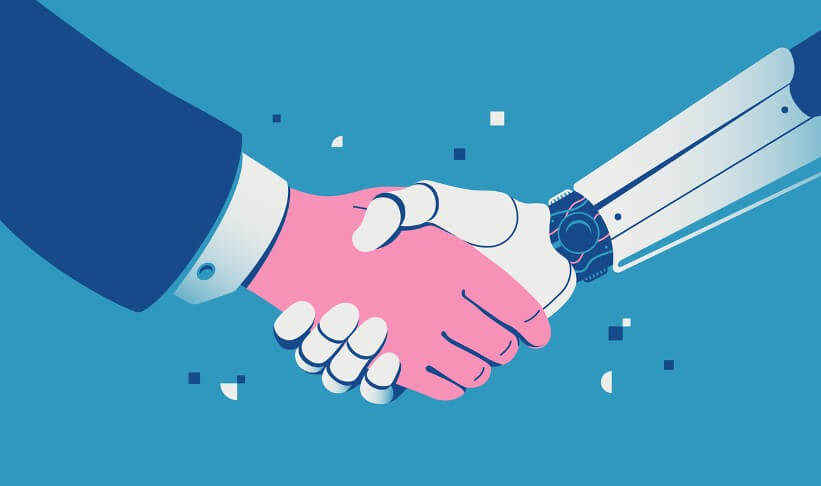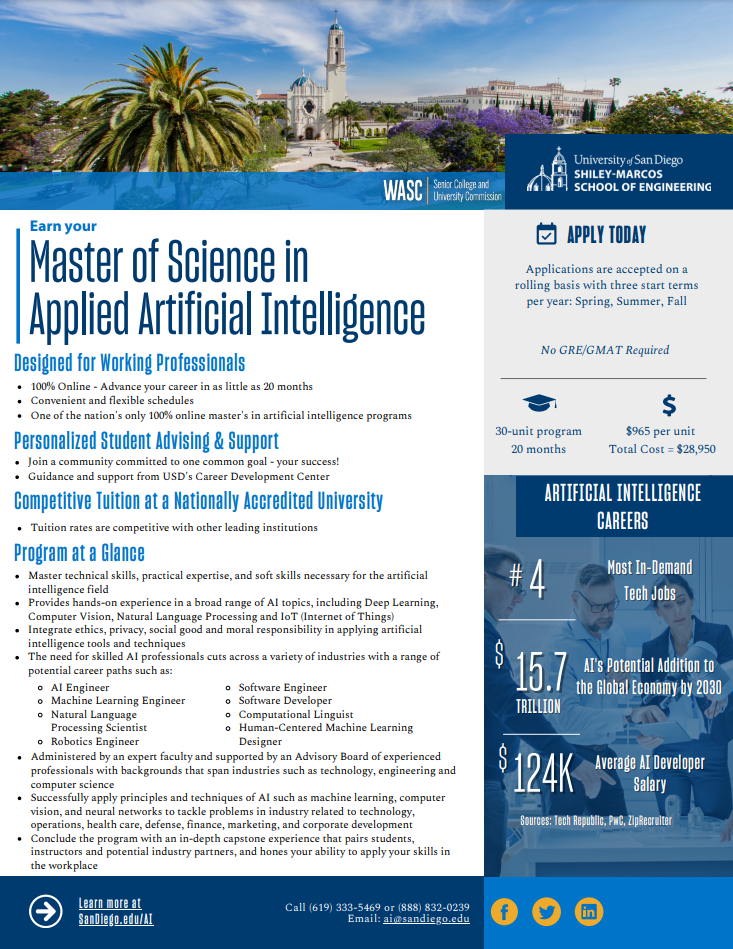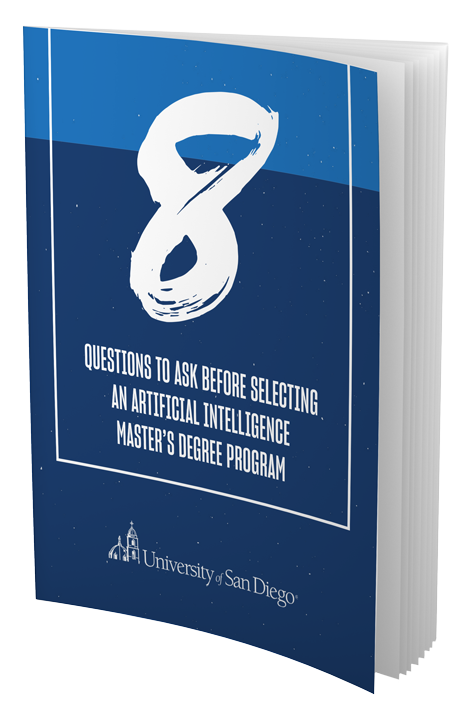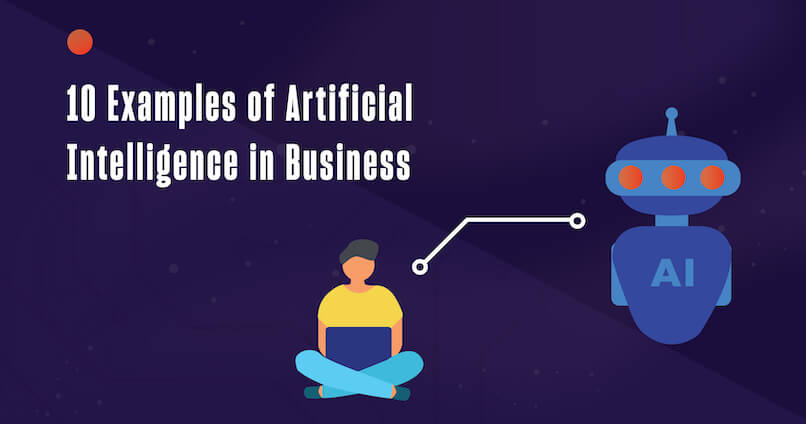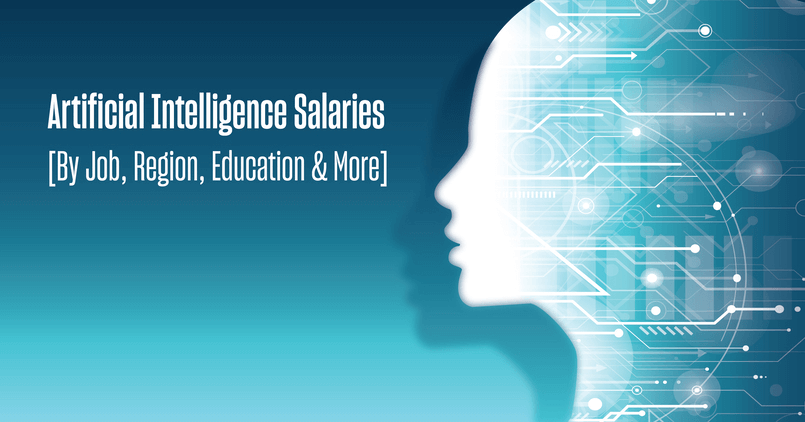The role of artificial intelligence (AI) in the modern job market is substantial and multifaceted.
On one hand, AI and automation have replaced some jobs, specifically those involving routine or repetitive tasks. This change has led to job displacement in various sectors, marking a shift in the employment landscape.
On the other hand, AI is also a creator of new job opportunities. It has given rise to new roles such as AI ethicist, machine learning engineer and many others that were non-existent a few years ago.
As AI advances, its influence on the job market becomes more pronounced. Understanding this dynamic is essential for professionals, job seekers and educators navigating the evolving employment ecosystem. Continue reading to learn more about AI impact on jobs and employment opportunities.
AI’s Role in Automating and Replacing Existing Jobs
The capability of AI to automate tasks is a double-edged sword. While it enhances operational efficiency, it also raises concerns regarding job displacement.
Earlier predictions, such as a 2013 study from the University of Oxford, speculated that nearly 47% of US jobs could be automated by AI over the following two decades. This prediction seems to have been overstated, however, a more recent study by Goldman Sachs suggests that generative AI tools could impact around 300 million full-time jobs globally, hinting at a significant disruption in the job market.
Sectors Most at Risk
Certain industries appear to be more susceptible to the automation wave driven by AI. Here are some sectors that face a higher risk of automation:
- Finance and banking: Automation in this sector is driven by AI’s ability to handle data analysis, fraud detection and customer service tasks.
- Media and marketing: AI can automate routine tasks such as data analysis for consumer behavior insights, content curation and digital advertising campaigns.
- Legal services: Automation can handle document review, legal research and other preparatory tasks, allowing legal professionals to focus on more complex issues.
Jobs Facing Automation
- Customer service representatives: Automated systems are now capable of handling a substantial portion of customer inquiries and complaints.
- Drivers: Autonomous vehicle technology threatens jobs related to driving.
- Computer programmers: Even programming tasks can be automated to some extent with AI, though more complex tasks still require a human touch.
- Research analysts: Automation can handle data collection and preliminary analysis, enabling analysts to focus on deeper interpretation.
- Paralegals: Document review and other routine tasks can be automated, freeing up time for more complex legal work.
- Factory/warehouse workers: AI-driven robots are increasingly taking over repetitive tasks in factories and warehouses.
Jobs Less Likely to be Replaced
Certain jobs remain more secure due to their inherent human-centric nature. These professions require a level of empathy, understanding and creativity that AI is far from replicating:
- Teacher
- Nurse
- Social Worker
- Therapist
- Handyperson
- Lawyer
- HR Specialist
- Writer
- Artist
AI as a Job Creator
Apart from automating tasks, AI is also creating new jobs. These roles are crucial for developing, managing and ensuring the ethical use of AI technologies.
Here are five new roles created from advancements in AI:
- AI prompt engineer: They design and refine prompts to improve the responses from AI systems.
- AI ethicist: They ensure the responsible and ethical development and deployment of AI technologies.
- AI trainer: They train AI systems to improve accuracy over time by providing feedback and correcting errors.
- AI auditor: They evaluate AI systems to ensure compliance with legal and ethical standards.
- Machine managers: They oversee the operation of AI systems and machines to ensure proper functionality and performance.
AI’s Influence on Hiring
AI is transforming the landscape of human resources (HR) and recruitment by streamlining numerous processes. Its introduction to HR has brought about advantages while also posing certain challenges.
Advantages of AI in Hiring
AI enhances efficiency in recruitment processes. It accelerates tasks such as sorting through applications and screening candidates.
AI also plays a role in understanding employee turnover by analyzing data to discern the factors leading to employee dissatisfaction, which can be invaluable for improving retention rates.
Moreover, AI can predict talent needs within a company or a specific department, enabling proactive recruitment strategies.
Another advantage is the potential for unbiased screening. Ideally, AI can evaluate candidates based on specified criteria without human biases, promoting a fairer selection process.
Disadvantages and Challenges
The potential for bias is a notable disadvantage. If AI systems are trained on datasets primarily representing a certain demographic, they might fail to provide a diverse pool of candidates. This reflects the biases present in the training data or programming. Addressing these biases to ensure a fair recruitment process is a significant challenge that requires meticulous attention.
Additionally, AI combats employee burnout by taking over mundane tasks, freeing up time for employees to engage in more creative or intellectually stimulating work.
AI and the Demand for New Skills
AI is reshaping the skills landscape across various industries. Machines taking on more routine and data-driven tasks boosts the demand for specific human skills. These skills are essential for interacting with AI systems, contributing to their development and applying them in problem-solving scenarios.
Meta Skills
These are higher-order skills that enhance an individual’s interactions with both AI systems and other humans:
- Feeling: Having empathy and honing intuition
- Seeing: Understanding how the parts fit the whole picture
- Dreaming: Applying imagination to think of something new
- Making: Incorporating creativity, design, prototyping and testing
- Learning: Learning how to learn (the foundation for all other Meta skills)
The emphasis here is on moving from “collecting dots to connecting dots.” This shift in focus highlights the importance of seeing the bigger picture and creating new solutions rather than just gathering information.
Top 10 Skills of the Future
According to the World Economic Forum 2020 Future of Jobs Report, individuals should consider building the following skills to stay competitive and relevant in the AI-driven job market:
- Analytical thinking and innovation
- Active learning and learning strategies
- Complex problem-solving
- Critical thinking and analysis
- Creativity, originality and initiative
- Leadership and social influence
- Technology use, monitoring and control
- Technology design and programming
- Resilience, stress tolerance and flexibility
- Reasoning, problem-solving and ideation
These skills underscore the evolving nature of work and the shift towards more cognitive, creative and interpersonal skills. They will be essential in leveraging AI and automation to solve complex problems, drive innovation and ensure meaningful human contribution in the workforce.
Preparing for an AI-Driven Job Market
The rise of AI is ushering in a new era in the job market. To stay relevant and secure in their careers, professionals must adapt to the evolving landscape. Here are some actionable steps shared by Indeed.com that professionals can take to position and protect themselves amid AI-induced changes:
1. Be Flexible
In a rapidly changing job market, flexibility is key. Being open to new roles, responsibilities and learning opportunities can help professionals navigate the shifts caused by AI and automation.
2. Foster Your “People Skills”
AI lacks the human touch, making people skills more valuable than ever. Communication, empathy and teamwork are crucial and can set individuals apart in an AI-driven environment.
3. Build Your Network
Building a professional network can provide support, insights and potential job opportunities as the AI landscape evolves.
4. Continue to Learn About AI
Having a solid understanding of AI and its applications in your field can be a significant advantage. Professionals can take online courses, attend workshops or read books and articles to keep up with the latest developments.
5. Use AI to Your Benefit
Leveraging AI tools and platforms can increase efficiency, provide new insights and free up time for more strategic tasks. Embracing AI, rather than resisting it, can help professionals stay ahead in their careers.
How Can a Master’s in Applied Artificial Intelligence Help?
Amid the transforming job market, education serves as a powerful tool to secure a solid footing. The Master of Science in Applied Artificial Intelligence program at the University of San Diego equips students with the necessary knowledge and skills to thrive in the AI-driven landscape.
Here’s how the program positions students for success:
Comprehensive Curriculum
The curriculum is meticulously crafted to cover a broad spectrum of AI-related topics. From machine learning and deep learning to ethics in AI, students get a well-rounded education that prepares them for various roles in the AI domain.
Practical Experience
The program emphasizes real-world applications of AI, providing students with hands-on experience through projects with fellow students, instructors, and potential industry partners. This practical approach ensures students are job-ready and well-versed in applying AI solutions to real-world problems.
Expert Faculty
The program boasts a faculty of professionals and academics in the field of AI. Their diverse expertise provides students with a rich learning experience and insights into the latest developments in AI.
Networking Opportunities
With connections to industry leaders and potential employers, the program offers numerous networking opportunities that can open doors for students as they transition into the professional world.
Lifelong Learning
The rapidly evolving nature of AI necessitates a commitment to lifelong learning. The program instills a culture of continuous learning, ensuring that students stay updated with the evolving AI landscape.
AI and the Job Market: Final Thoughts
AI has a significant impact on the job market, leading to both job displacement and the creation of new roles. It also affects hiring processes and demands new skills from professionals to stay relevant.
AI education, such as the Master’s in Applied Artificial Intelligence program at the University of San Diego, prepares individuals to navigate these changes with ease.
For more detailed information on choosing the right AI Master’s Program, we encourage you to download our eBook, 8 Questions to Ask Before Selecting an Applied Artificial Intelligence Master’s Program.
